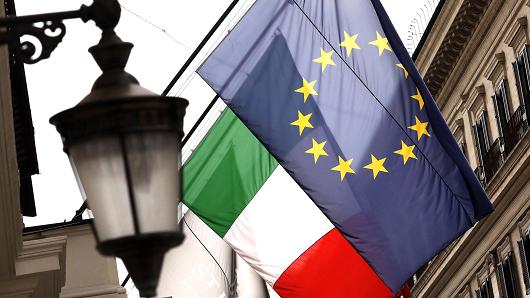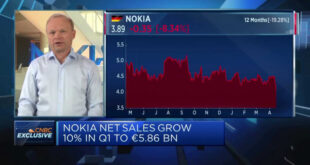
Elisabetta A. Villa | Getty Images
European Union (EU) and Italian national flag banners hang in central Rome on May 29, 2018 in Rome, Italy.
The European Central Bank (ECB) is under renewed criticism for buying fewer Italian sovereign bonds in May, when political instability meant it was a time when Rome may have needed it the most.
The new populist Italian government was quick to highlight a data release Monday that showed the euro zone’s central bank bought a net 3.6 billion euros ($ 4.21 billion) of Italian bonds last month. This is part of its massive bond-buying program where it essentially lends money to governments to stimulate growth and inflation.
This new figure was a smaller number as an overall proportion of all the net purchases conducted by the central bank. At the same time, the ECB also bought more German bonds — another number that didn’t go down well in Rome.
The accusations suggest some believe the central bank could have purposefully manipulated the market in a way that would hurt the country and pressure the new lawmakers with borrowing rates rising rapidly. The yield on the 10-year Italian paper, which moves inversely to the price, has risen sharply in the last few weeks — hitting nearly 3.2 percent last Tuesday — in a sign that investors were fretting about the country’s political instability. The move even managed to roil global stock markets.
Claudio Borghi, a top economic adviser for the Lega party — one of the two political parties forming the new Italian government — told the Financial Times it was “no surprise” to discover the ECB had been buying more German bonds. The right-wing Lega and the anti-establishment Five Star Movement are notably euroskeptic and have formed a coalition that wants to increase public spending and, thus, challenge European fiscal rules.
However, analysts have told CNBC that there’s nothing suspicious about the ECB’s activity.
“This is an artefact of people not understanding the two sides of the large scale asset purchasing program,” Erik Jones, a professor of International Political Economy at Johns Hopkins University, told CNBC Tuesday via email.
 EU News Digest Latest News & Updates
EU News Digest Latest News & Updates


